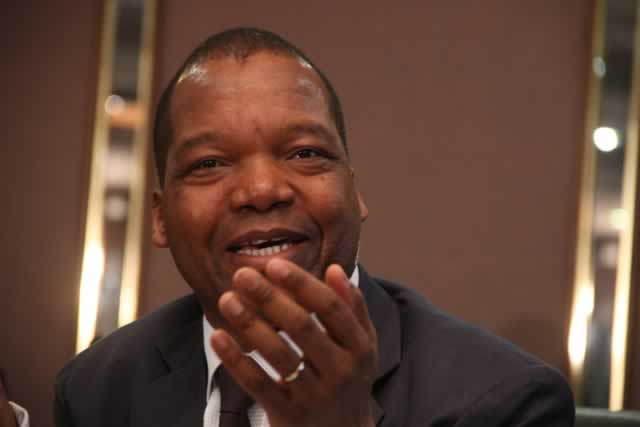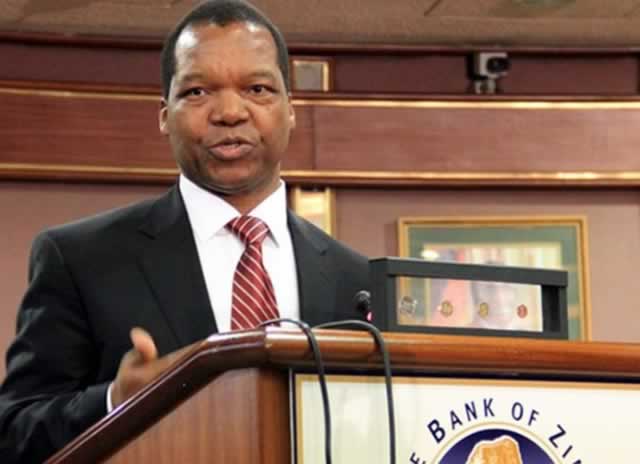RBZ gives farmers corporate status…now eligible to withdraw $10 000 per day

Elita Chikwati Agriculture Reporter—
The Reserve Bank of Zimbabwe on Friday elevated tobacco farmers to corporate clients eligible to withdraw up to $10 000 per transaction. This was after the farmers protested the imposed maximum withdrawal limits of $1 000 daily. Anti-riot police had to be called in to maintain order as the farmers argued that the $1 000 withdrawal cap was not enough to cover labour, transport and other farming activities.
The central bank on Wednesday reviewed maximum daily cash that can be withdrawn inside banking halls and at Automated Teller Machines to 1 000 for US dollars and euros and 20 000 for rands to promote the widespread use of multi-currencies to arrest the obtaining cash shortages. Farmers demonstrated against the RBZ at Boka Tobacco Floors and blocked trucks that were delivering the crop to the floors, paralysing business in the process.
Also read:
- Farmers expected to rake in $700m
- Tobacco payment plan to enhance self-financing
- Cash crisis hits banks, shops
- Financial inclusion to be spread
- Tobacco changes: Thrill gone
- Farmers slow tobacco deliveries
- Financial inclusion is not about bank accounts
An official from the RBZ accompanied by Tobacco Industry and Marketing Board and BTF workers, addressed farmers who vowed to disrupt business at the tobacco action floor. There were no reports of chaos at other auction floors. The team moved around the banks’ premises explaining the situation to farmers and informed them of the new developments and issued the central bank’s directive. In the statement, the RBZ said farmers and gold panners were given new status as corporates clients.
“We refer to the cash and ATM withdrawal limits announced by the RBZ Governor (Dr John Mangudya) on May 4, 2016. Please be advised that tobacco farmers and gold producers are corporate clients and as such, the existing cash withdrawal conditions and thresholds for corporates prevail. Banking institutions will need to continue exercising Know Your Customer due diligence,” reads the statement.
TIMB communications manager Mr Isheunesu Moyo confirmed that tobacco growers demonstrated against the cash withdrawal limits. He said with the intervention of stakeholders, the situation was brought under control and business continued uninterrupted. “Farmers were against the RBZ regulation of a maximum withdrawal of $1 000 and being paid in rand and euro.
“We have addressed farmers on the issue and the situation has since returned to normal. Now farmers are going to be treated as corporates and get a maximum of $10 000. Tobacco farmers will also get a 5 percent incentive on sales,” he said.
BTF operations manager Mr Moses Bias said farmers were not happy with the cash limitations, but the stakeholders were working to come up with solutions. Mr Bias also raised concern over some farmers who were still coming to sell their crop without opening bank accounts. He said some farmers did not understand that the bank transfers took 24 hours before the money could reflect in the farmers’ bank account.
“Some farmers are not aware of how the new payment system works. It takes 24 hours after a bank transfer for the money to reflect in the account. Some farmers wait for their money to reflect in their accounts before they return home,” he said. Some of the affected farmers said the withdrawal limit that had been proposed by RBZ presented challenges as they had to pay workers back home.
Some farmers said they were not comfortable with getting euros and rands and preferred the US dollar they were used to while others said it was better to use multi-currencies as long as they got all their money. Zimbabwe has been experiencing cash shortages during the past few weeks, which have seen some banks reducing withdrawal limits.
The major reasons for cash shortages include a dysfunctional multi-currency system which has seen the country predominantly using the greenback as its anchor currency unlike in 2009 (when multi-currency was introduced) when 49 percent of the transactions were done in rand.
Low usage of plastic money and Real Time Gross Settlement, low confidence and inefficient use of scarce foreign currency have also resulted in cash shortages. The strong US dollar has made Zimbabwe a high cost producing country, expensive destination for tourists while externalisation of funds continued to put pressure on the country’s balance of payments position.









Comments